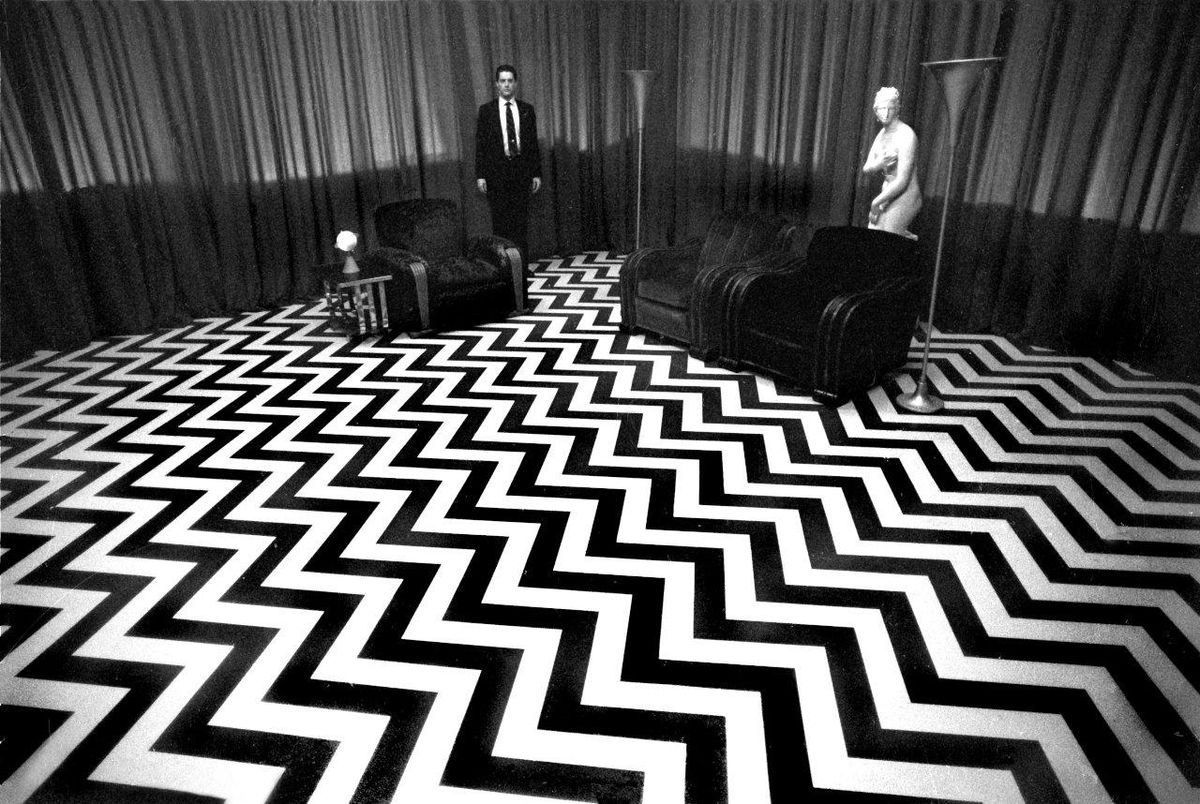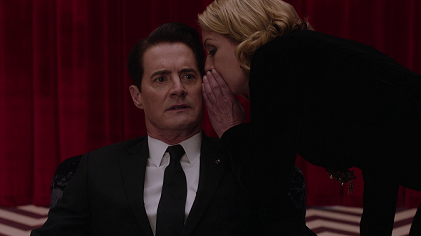DISCLAIMER: MINOR SPOILERS FOR TWIN PEAKS
So now it was time to start Smashing through TP and everything it had to offer. I found myself absolutely enthralled and unable to stop watching for the most of this series. The characters were extremely well written, goofy, and fun. The mystery was captivating and had me constantly guessing. The production quality is unmatched for its time, with incredible direction, writing, cinematography, editing, acting, sets and sound. And most importantly, the show’s atmosphere had Lynch written all over it. So these examples of why I liked TP is all well and good but it doesn’t answer the question, “What it is about Lynch’s persona and work that interests me?”.

To answer this question I had to really start looking inward on what it was about the show that David Lynch brought to it that made me so intrigued. To do this id need to choose a method that best suited my experience with the show. That method would be the Autobiographical method, which aim is to “awaken and inspire researchers to make contact with and respect their own
questions and problems, to suggest a process that affirms imagination, intuition, self-reflection, and the tacit dimension as valid ways in the search for knowledge and understanding” (Douglass & Moustakas, 1985, p. 40). This method of autoethnography would allow me to talk about and reflect on my experience, opinions, interpretations of the show, Lynch and hopefully gain a better understanding of the question I’m asking myself.

The first season, which consists of 8 episodes, I believe to be one of televisions greatest opening seasons of all time and smashed it out in about 2 days. These first 8 episodes set up the show and gave solid introductions to the shows major characters. The first 6 episodes from the original series second season were still solid and had me thoroughly engaged and found myself enjoying and invested in every second of the mystery and surreal nature of the show. Episode 7 while easily one of the best episodes, reveals the Laura’s killer. This I believe wouldn’t have been a problem if series wrapped up after this, But the show goes on for another 15 more episodes. Every episode from #7 was such a drag to get through and just felt really silly and not really Twin Peaks. The direction feels off, characters are written super strange, editing and music choices are really weird and abrupt and I just wasn’t invested anymore. Now I did have the understanding that Lynch was infamously uninvolved after the Mystery was revealed and I thought that maybe this affected my views and opinions on these episodes. But I remembered that this was about the time I stopped watching when I first attempted to watch Twin Peaks a few years back and at that time I didn’t have that knowledge. So yeah, I think Lynch truly did bring something extremely special to this show and something that kept me coming back. But at least this time I had the return series to look forward to, which I knew Lynch directed and wrote every episode of. So I decided to push through and finish off the series. After finishing the series I took some time to reflect on the way the show made me felt and how I experienced it. While Twin Peaks obviously deals with some heavy themes, like abuse, drug addiction and murder, it always found a way to incorporate quirkier and optimistic elements as well which I really liked. This contrast is something that I really came to appreciate and notice more as a common characteristic of the show and of Lynch’s as a whole. For example Kyle Maclahclan’s character Dale Cooper, who is the main protagonist, is constantly pitted against these darker themes of the show, but his character always gave me a more optimistic outlook on the show as a whole due to his quirky traits. I would go as far as to say that I even see some of Lynch in this character. Take these two clips for example-
There’s also the philosophical and moral ideas that Lynch implements into the show. Ideas that really stuck with me after the show which made me think and reflect. For example, good vs evil with the supernatural elements of Bob possessing Leland being the evil, and One armed Mike being the good fighting against Bob. I also interpreted Bob as Leland letting his darker side that’s present within him take over and commit these horrendous crimes.

After watching the original series I then moved on to Fire Walk with me, which recounts the final days of Laura’s life and exactly how she died. As a stand alone movie, I can’t really seeing this hold up and even as a prequel to the series, I didn’t find it particularly necessary. That being said, Lynch instils a sense of dread into this movie which makes this movie more akin to something like a horror movie unlike the shows more light-hearted tone. This movie left me in a state of depression after watching it due to its dark themes and ideas. While I’m never against an artist censoring or holding back darker themes from their vision, I just don’t think it really fits well when held up to the more off-beat and quirkiness of the show.

Where to begin with The Return? This shit was weird ass, in true David Lynch style. So this season starts off 25 years after we were left on the cliff-hanger finale of season two. A lot of this season felt more like a dream to me than a series of events unfolding, and its about as Lynchian as I could hope for. Episode 8 (which gave me a little bit of Eraserhead vibes) is such a bonkers episode, and is easily my favourite episode from the series. Just this episode alone encapsulates what it is I love so much about Lynch and his work. Super surreal, experimental and refused to hold my hand and give me the answers to everything I wanted them for, but instead asked me to interpret it how I liked. As the season went and just as I felt that I was starting to get a grasp on answers and what Lynch is trying to convey, part 18 came around and threw me off the rails. It answers questions but for each answered it leaves 20 more its place.
In my next blog I will be discussing my experience with Lynch’s community and the different platforms I used to navigate it. I will be using the participant observation as my research method to analyse my findings and will be summarising my research.
REFERENCES
Douglass, G, & Moustakas, C 1985, ‘Heuristic inquiry: The internal search to know.’ https://journals.sagepub.com/doi/10.1177/0022167885253004 [6th November 2020]